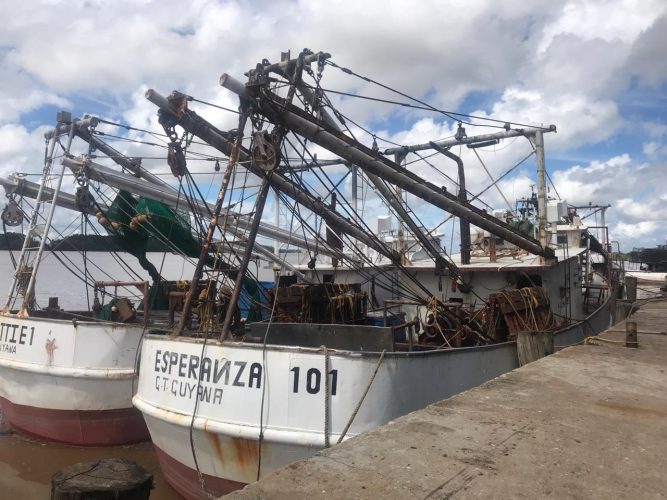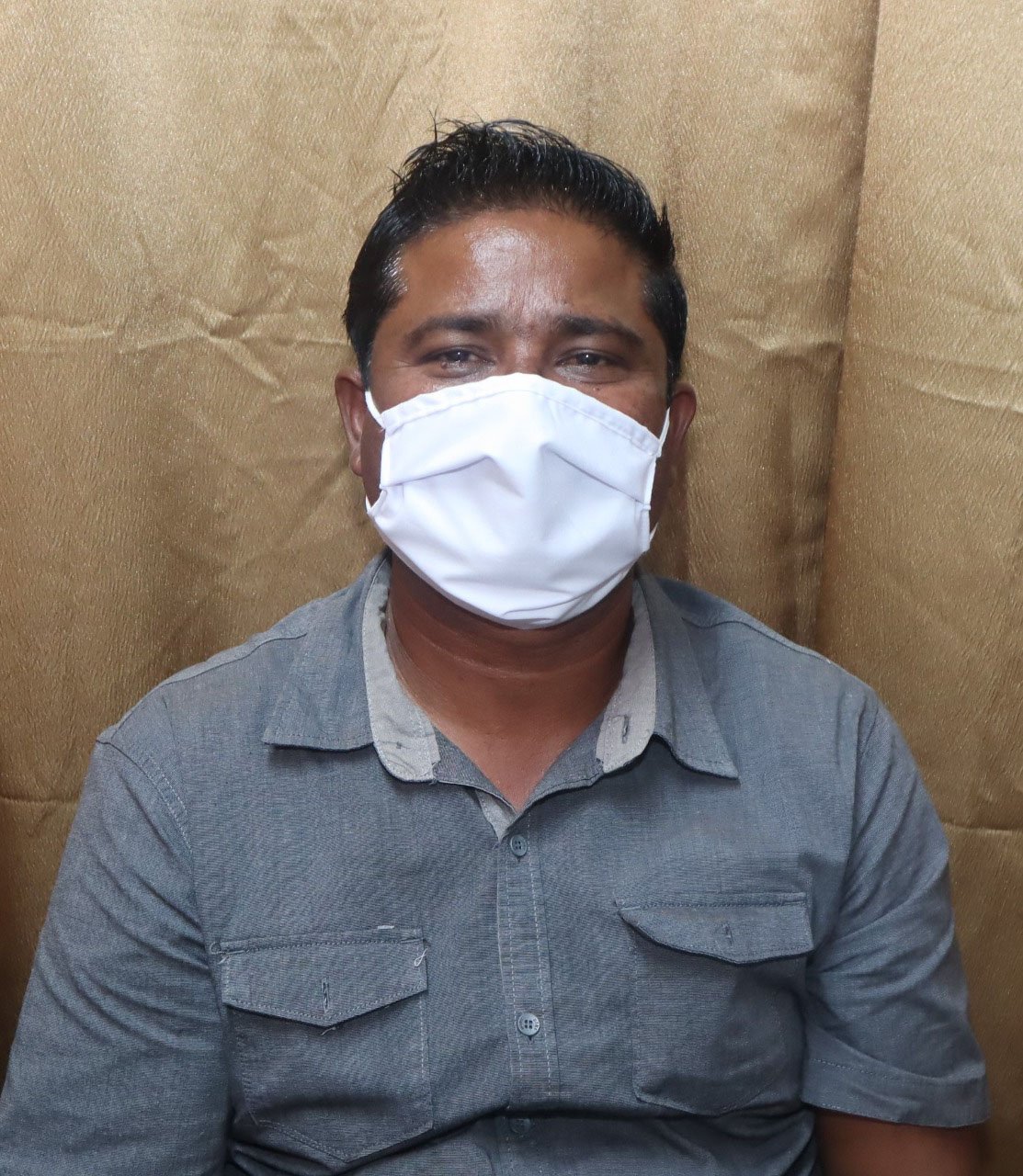The holder of the two controversial trawling licences remains a mystery to persons in the seabob trade and sources familiar with the sector have told this publication that during the course of year they have not noticed any new vessels operating in the regulated fishing zone.
Questioned by Stabroek News about whether the licensee Rampersaud Sookhdeo has been operating, Minister of Agriculture Zulfikar Mustapha said that he would have to check with the fisheries department for the information.
Mustapha pointed out, too, that the seabob trade season has been closed since the end of July and so no one will be operating in the Atlantic seabob fishing zone. The trading season is closed until September. The closed season serves as a means of sustainable fishing as during this time stocks are able to reproduce and mature.
Checks by Stabroek News two weeks ago for Sookhdeo proved futile as persons who are familiar with fishing activities in the community of La Jalousie, were unaware of his operations. Most persons, villagers indicated, are artisanal fishers. One person was familiar with the name and directed this newspaper to the home of the individual but no one was home at the time and neighbours indicated that the individual is not engaged in any business relating to the fisheries sector.
The Ministry of Agriculture had announced that Sookhdeo, of La Jalousie, West Coast Demerara, had been granted the licences following heavy criticisms over the secrecy in their issuance. The Guyana Association of Trawler Operators and Seafood Processors (GATOSP), operators of fish processing plants and trawlers, had warned that the new licences could jeopardise their Marine Stewardship Council Certification.

In light of the controversy, a committee comprising members from the Ministry of Agriculture and the GATOSP was set up to iron out issues over the issuance of the licences.
Following meetings with the Ministry of Agriculture, GATOSP has since been silent on the issue and efforts to contact its President Ruben Charles has been unsuccessful. The association had pointed out that while it did not have an issue of the licences, they objected to the process used in the approval since they were not consulted and the issuing of the licences breaches their agreement with the ministry.
According to the extant agreement, no more than 87 vessels should be operating in the industry. Noting that some licences are dormant, Mustapha had justified the approval by explaining that several licences are inactive and the current number of trawlers operating does not exceed 80, while contending that it does not go against the agreement in place with GATOSP and international partners.
In the letter dated 19 November, 2020, Charles, wrote to Mustapha for clarification, warning that new licences could jeopardise the sustainable certification secured from the international Marine Stewardship Council (MSC). The association in the correspondence pointed out that the addition of any vessel to the current licensing agreements is in contravention of the pact that it and the Fisheries Department of the ministry had agreed to.
Guyana holds the position as the number one exporter of seabob shrimp. In 2019, almost 21,000 metric tonnes were exported, versus 2018 when 22,000 metric tonnes were shipped out and more vessels on sea has the potential to decimate the sector.
Charles, when contacted back in February as to whether the association knew the licensee, told Stabroek News that it never heard of him and that “no one in the fishing industry seems to know who it is.”
The Ministry of Agriculture had identified Sookhdeo as a remigrant from Trinidad and Tobago, who has been working fisheries sector. But checks by Stabroek News with fishermen and the fisheries department in the twin island did not show any records of Sookhdeo’s operation and persons were unfamiliar with his name.
President of the Carli Bay Fishing Association, and member of Fisherman and Friends of the Sea, Imtiaz Khan told Stabroek News “We are not aware of any operator under that name or even the name Haseed Enterprise. It just doesn’t ring a bell to us,” in response to a query from this newspaper last week.
“I even checked with our Director of Fisheries Nerisa Lucky but the name doesn’t ring a bell to her. We have 128 trawlers registered and operating in different levels but the name doesn’t ring a bell,” Khan reiterated.
Sookhdeo, according the Agriculture Ministry has been in the fishing industry for over fifteen years and was operating under the name Haseed Enterprise in Trinidad and Tobago. He employs a number of Guyanese in his operations but was forced to relocate from Trinidad to Guyana because of COVID-19 restrictions and regulations, the release added.
Further pressure over the identity of the individual, had caused him to release a statement accompanied by a photograph through the Ministry of Agriculture. He was wearing a mask and was not easily identifiable.
In the statement issued by Sookhdeo, he declared that he was “not a ghost,” and said he has been in the fisheries business for 20 years and deserves an equal opportunity as a Guyanese to operate in the sector.
In his statement y, Sookhdeo said that before moving to establish his business in the twin island republic, he had applied 20 years ago to the Ministry of Agriculture for licences to operate in the seabob industry but had been refused. He provided no information on why he had been refused. If it was 20 years ago it would have been under the presidency of now Vice President, Bharrat Jagdeo who has spoken in favour of the licences to Sookhdeo.
Sookhdeo added that when he migrated to Trinidad, he partnered with an “old friend” and that birthed Hassid Enterprises Limited, which has been in existence for approximately 15 years. “Boats deteriorate fast because of the salt air. If you park up your boat for about two years, you’d be lucky if you get something out of it. That is why I turn to the government for help. I made an application and I went through the process,” Sookhdeo explained as he sought to provide clarity on the licensing issue.
Given the implications, the WWF Guianas’ local office had also written to Mustapha seeking clarification on the context in which the licences were granted. “…We would be grateful if you can provide any information you may have in relation to this matter,” Aiesha Williams, Guyana Country Manager for the WWF Guianas, wrote in the December 11 letter, saying there was need to better understand the context in which the licences were issued.
Williams also expressed concern over the reported issuance of the new licences in a manner that could have “deep implications” for the country’s ability to maintain its Maritime Stewardship Council certification over seabob.






